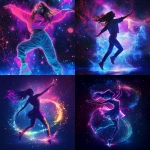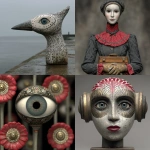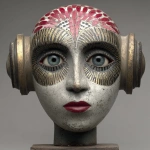Explore the Best AI Image Gallery
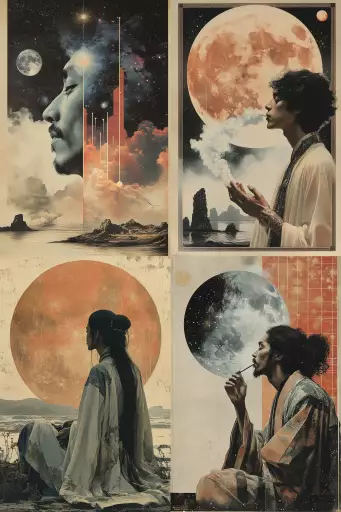
Beyond the Canvas: AI-Generated Media and the Evolving Creative Landscape
The realm of creativity is undergoing a profound transformation, fueled by the rapid advancements in artificial intelligence (AI). AI-generated media, encompassing everything from text and images to music and video, is blurring the lines between human and machine creation, raising both exciting possibilities and complex ethical dilemmas.
One of the most significant impacts of AI-generated media on the creative industry is the democratization of content creation. Tools powered by AI algorithms empower individuals with limited technical expertise to generate high-quality artistic outputs, opening up new avenues for self-expression and innovation.
Potential Applications: Reimagining Creativity
- Art and Design: AI can assist artists in generating novel concepts, exploring unconventional aesthetics, and automating repetitive design tasks, freeing up creative energy for higher-level conceptualization.
- Music Composition: AI algorithms can compose original music pieces in various genres, collaborate with human musicians, and personalize soundtracks based on user preferences.
- Film and Video Production: AI can assist in creating realistic special effects, generating background environments, and even writing scripts, streamlining the filmmaking process.
- Marketing and Advertising: AI-powered tools can generate personalized content, create engaging visuals, and analyze consumer trends to inform marketing strategies.
Ethical Considerations: Navigating Uncharted Territory
While the potential benefits of AI-generated media are vast, it is crucial to address the ethical considerations that accompany this technology:
- Copyright and Ownership: Determining the rightful ownership of AI-generated content raises complex legal questions. Who owns the copyright—the creator of the AI algorithm, the user who inputs the prompt, or the AI itself?
- Bias and Discrimination: AI algorithms are trained on vast datasets, which can reflect existing societal biases. This can result in AI-generated content that perpetuates stereotypes and discrimination.
- Transparency and Accountability: The decision-making processes of complex AI models can be opaque, making it difficult to understand how they generate outputs. Ensuring transparency and accountability is essential for building trust in AI-powered creative tools.
- Impact on Human Creativity: There are concerns that overreliance on AI-generated content could stifle human creativity and lead to a homogenization of artistic expression.
Future Trends: Shaping the Creative Landscape
The field of AI-generated media is constantly evolving, with ongoing research and development pushing the boundaries of what is possible:
- Generative AI Models: We can expect to see increasingly sophisticated generative AI models capable of producing even more realistic and nuanced creative outputs.
- Personalized Creativity: AI will play a greater role in tailoring creative experiences to individual preferences, enabling users to co-create content with AI assistants.
- Immersive Experiences: AI-generated media will enhance immersive technologies such as virtual reality (VR) and augmented reality (AR), creating more interactive and engaging artistic experiences.
- Ethical Frameworks and Regulations: As AI-generated media becomes more prevalent, we will need to develop robust ethical frameworks and regulations to address the associated challenges.
The integration of AI into the creative process is reshaping the way we create, consume, and interact with art. By embracing its potential while navigating its ethical complexities, we can harness the power of AI to unlock new frontiers in creativity and innovation.


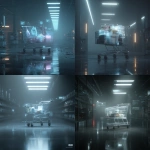
](https://images.ai-img.art/thumbnails/150/6a577517a359cd2bc6212d6b0f12c7cab660841317023550a76c84f409c7f2d0.webp)

](https://images.ai-img.art/thumbnails/150/1b14bd827b740aca3b0d8efa7ed6865e28c7c8382172f3f565c96b6c5f64ca78.webp)

](https://images.ai-img.art/thumbnails/150/45237dfa7845159b860f9e234c48c4418e8efcb52b4d15da4493f46e6a99f337.webp)


](https://images.ai-img.art/thumbnails/150/065f0b2e150f4cc43a9da80d822e8a385e9e50f2f6ff2cc3be7639cfd74952da.webp)


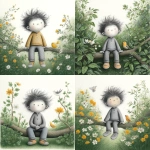


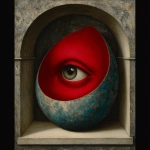



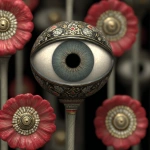


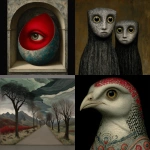


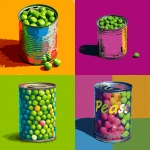





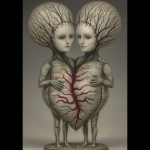
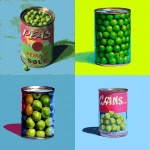
](https://images.ai-img.art/thumbnails/150/6a9bb97a3f1c45ab616724cc54bca010cbcc2d658a9c0e4581aa181c88046444.webp)



